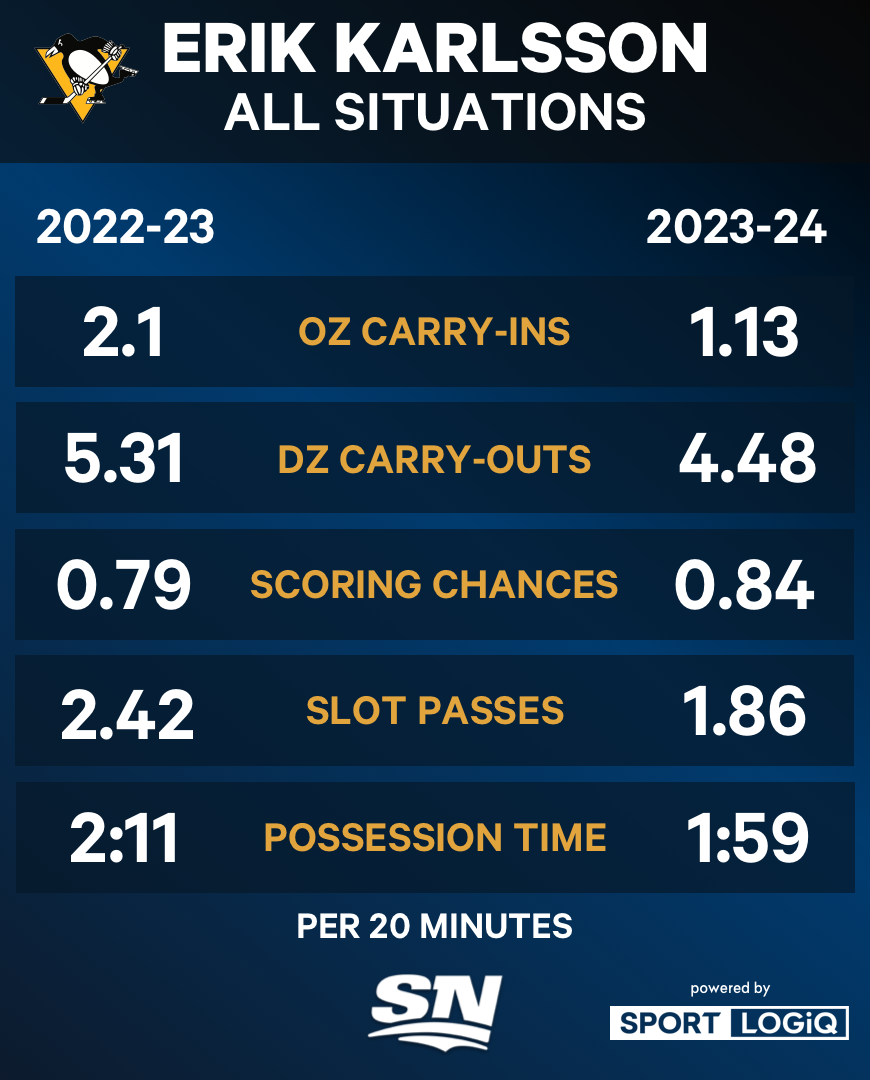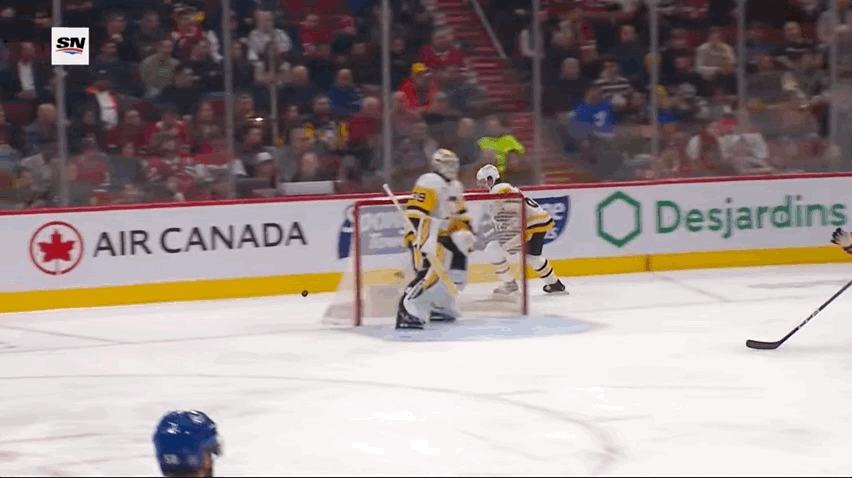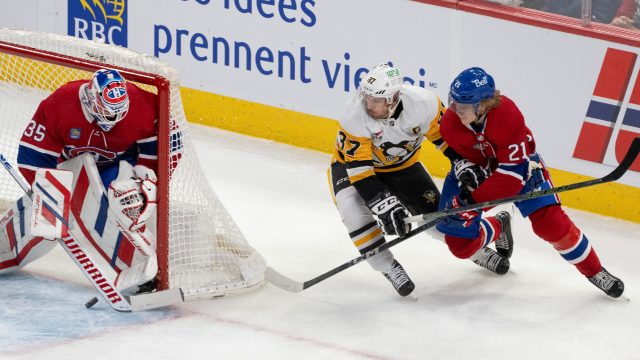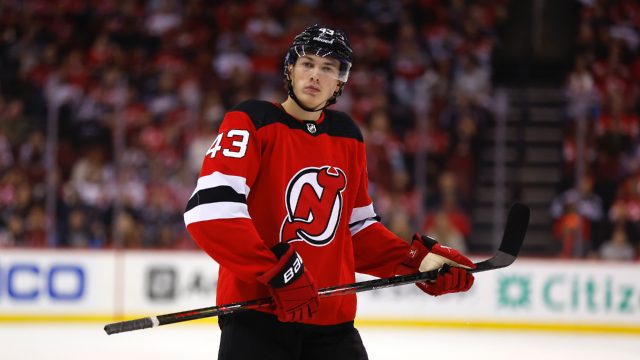
This is not the start to the season that the Pittsburgh Penguins envisioned when they traded for Erik Karlsson over the summer.
Despite having no fewer than four future Hockey Hall of Famers playing prominent roles (Karlsson, Sidney Crosby, Evgeni Malkin and Kris Letang), the Penguins are in seventh place in the Metropolitan Division and four points out of a playoff spot in the Eastern Conference.
Karlsson, a lightning rod throughout his career, is pretty far down on the list of Pittsburgh’s problems. He is not piling up points like he did last season, which was to be expected. But the fact remains that few defencemen can touch Karlsson when it comes to generating offence. The Penguins average 1.66 expected goals per 20 minutes in all situations when Karlsson is on the ice, which leads all NHL defencemen.
Some of Karlsson’s individual numbers are down from his Norris Trophy-winning season with the San Jose Sharks, but that is partially a product of having more talented teammates who can also handle those responsibilities. (Karlsson’s 1.86 slot passes per 20, for example, rank first out of 240 defencemen who have played at least 100 minutes.)
It is well understood that Karlsson’s swashbuckling style lends itself to occasional mishaps with the puck. Opponents have scored 10 goals within 10 seconds of a Karlsson turnover this season, a figure that leads the NHL. The Penguins have outscored opponents 47-28 (33-17 at 5-on-5) with Karlsson on the ice, though, so the good has outweighed the bad in that regard.
The biggest concern in Pittsburgh has been the power play, which recently endured a franchise-worst 13-game drought (0-for-37 when including the game before the dry spell started).
Karlsson quarterbacks the top unit, which also features Crosby, Malkin, Jake Guentzel and a rotating fifth member. The version that includes the injured Bryan Rust has averaged 0.37 expected goals per two minutes — fifth best out of 46 power-play units that have played together for at least 20 minutes. The grouping with Reilly Smith ranks 11th. The Penguins’ 4-for-8 performance over the past two games suggests that their power-play troubles could soon be behind them.
Penguins general manager Kyle Dubas probably spoke for a lot of observers earlier this week when he said, “No one really wants to hear about the underlying stuff about the even-strength play or even the power play. They want to see execution on the ice.”
There is truth to that point. The Penguins, however, should feel encouraged by what they have seen from Karlsson.
“Erik, in my view, has been a great addition on spurring conversation about how we can continue to evolve and change,” Dubas told reporters. “He doesn’t truly accept status quo in his own game or in others (in terms of) the way we should go about things.
“It’s easy for some players to be intimidated, and rightfully so, by some of the presence and pedigree of the people that we have that have won (multiple) championships here. Erik comes in and he’s very respectful, great energy, very gregarious and inquisitive, but he’ll also push. Especially when we’re at the spot we’re at right now, you need that.”
All stats via Sportlogiq








